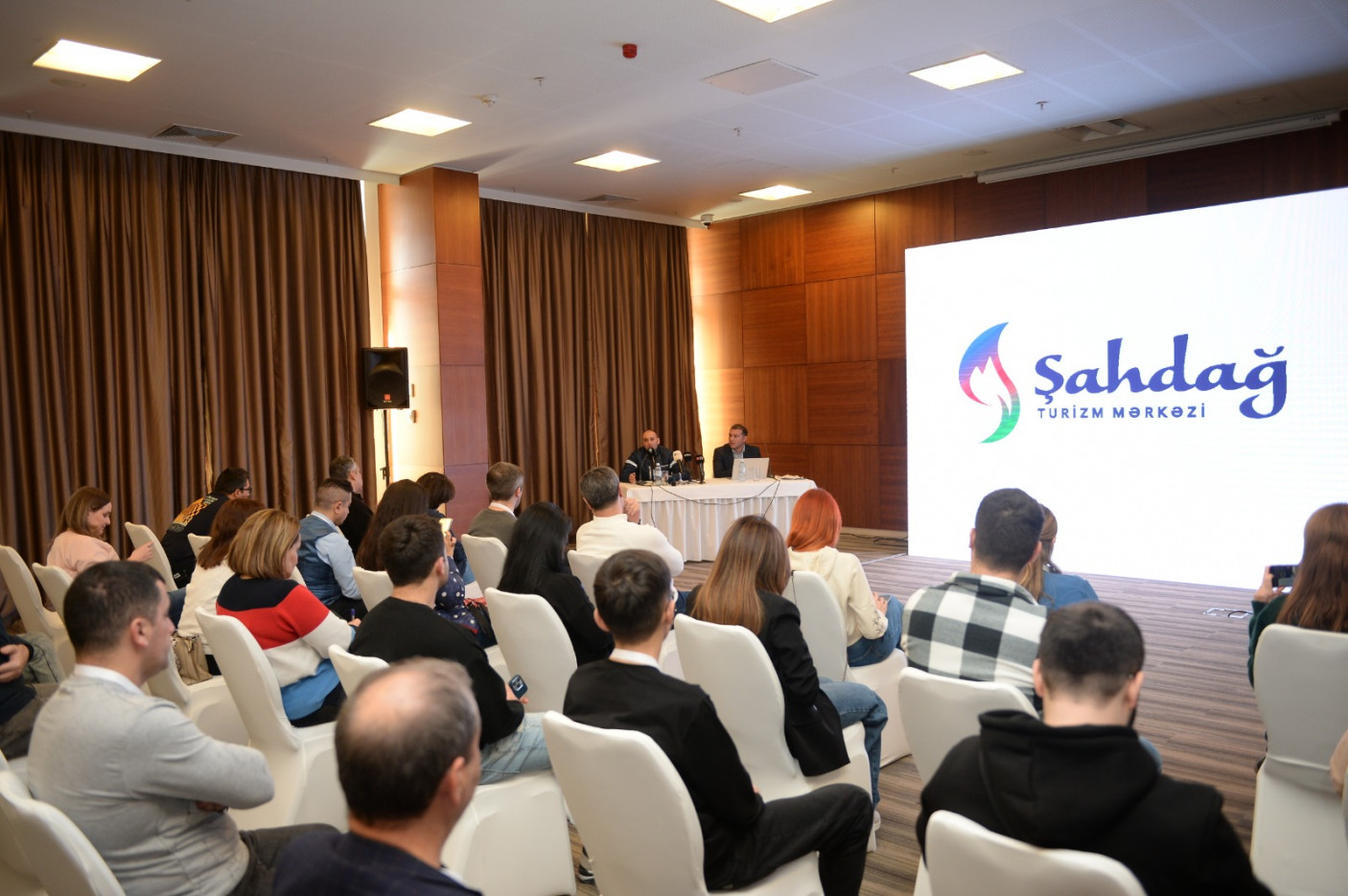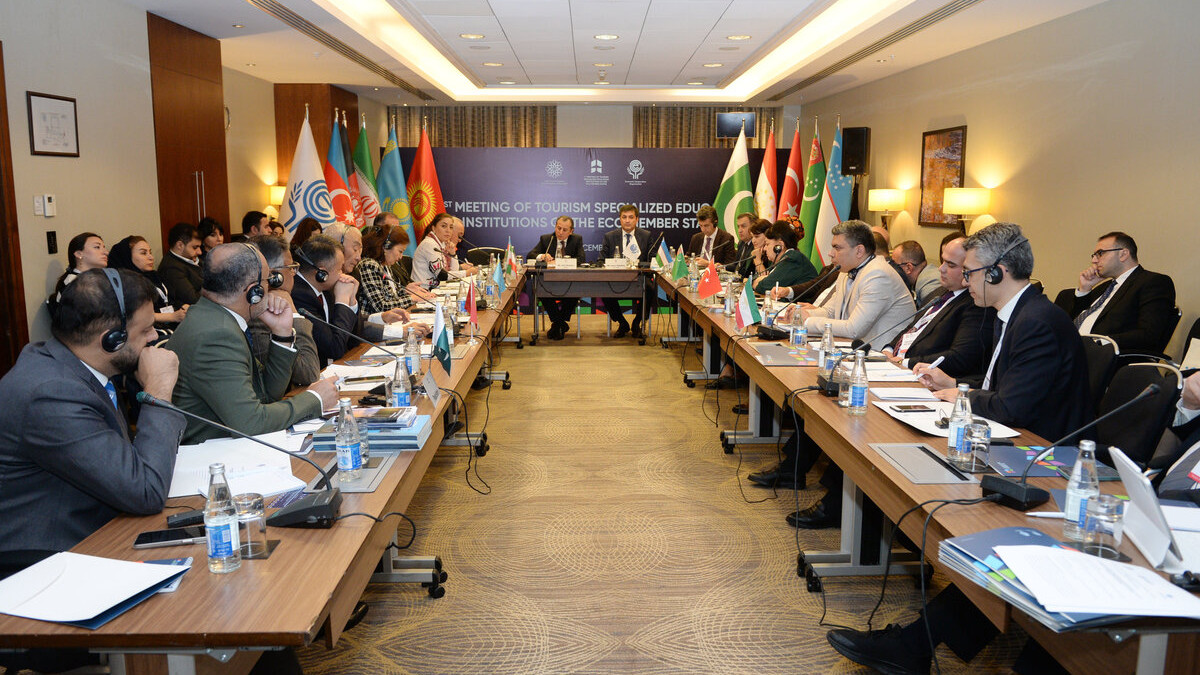On December 14, the 1st scientific-practical conference on the "Restoration and Development of Tourism in Territories Liberated from Occupation" was held in Aghdam, organized by the State Tourism Agency.
The conference saw the participation of representatives from state bodies, investors, individuals from the tourism industry, and students studying tourism. The event was organized to facilitate discussions on the tourism potential in Karabakh and the Eastern Zangazur region. It focused on exploring effective methods for utilizing existing resources and generating proposals for the rapid development of the sector.
Before the conference, attendees visited the Memorial Complex, where they paid their respects to the martyrs by placing flowers in front of the complex.
Azade Huseynova, Deputy Chairman of the State Tourism Agency, delivered the opening speech at the event, providing information about the new tourism infrastructure established in the regions liberated by the Azerbaijani Army under the leadership of the victorious Commander-in-Chief, President Ilham Aliyev.
A. Huseynova noted that design works are currently underway for the development concepts aimed at creating tourism infrastructure in the villages of Tugh and Hadrut in Khojavand, as well as the village of Dashalti in Shusha. In reference to the opening of the recreation park in the Sugovushan settlement of Tartar region, the establishment of the "Tugh" State Historical-Architecture and Nature Reserve, and tourist excursions to Shusha, A. Huseynova emphasized that the efforts in this direction will persist and continue.
In his speech, Faig Hajiyev, adviser to the Special Representative of the President of the Republic of Azerbaijan in the liberated territories within the Karabakh Economic Region (excluding Shusha), declared that under the "1st State Program on the Great Return to the Liberated Territories from Occupation of the Republic of Azerbaijan," extensive restoration and construction activities are underway in Aghdam and other regions. He highlighted the broad tourism potential for the development of various types of tourism in Karabakh, emphasizing that tourism will be a primary focus in the region's restoration.
Following that, Florian Sengstschmid, Chief Executive Officer of the Azerbaijan Tourism Board, presented on the topic of best practices in the development of tourism in the post-conflict period and the enhancement of propaganda efforts. Elgun Javadov, Head of the Regional Tourism and Cultural Heritage Department of the State Tourism Agency, delivered a presentation on the development and recovery directions of tourism in the Karabakh and Eastern Zangazur economic regions, emphasizing the effective utilization of existing potential.
The panel titled "Tourism Aspects of the Investment Environment in the Liberated Territories: Current Challenges and Opportunities" focused on discussing the investment needs of the region, as well as the overall investment environment and delved into the process of attracting investors to the liberated territories. The audience's questions were addressed at the end of the discussions, with the participation of relevant state institutions and business representatives.
During the session titled "Scientific View of the Development of Tourism in Territories Liberated from Occupation," student groups from Baku State University, Azerbaijan University of Tourism and Management, Azerbaijan State University of Economics, ADA University, and Khazar University presented their projects related to the topic.
At the conference, a round table was also organized on the topic "Expansion of tourism services infrastructure and improvement of service quality in territories freed from occupation".
Representatives from the Azerbaijan Hotel Association, Azerbaijan Tourism Agencies Association, Azerbaijan Tourism Guides Association, Azerbaijan Health and Thermal Tourism Support Association, along with representatives from several hotel and tourism companies, engaged in discussions on the topic during the round table. Throughout the discussions, there was an exchange of ideas regarding the organization of tours not only to Shusha, but also to various liberated areas, the creation of new tourism products in Sugovushan and other regions, enhancing service accessibility for tourists, and developing models for public-private partnerships.
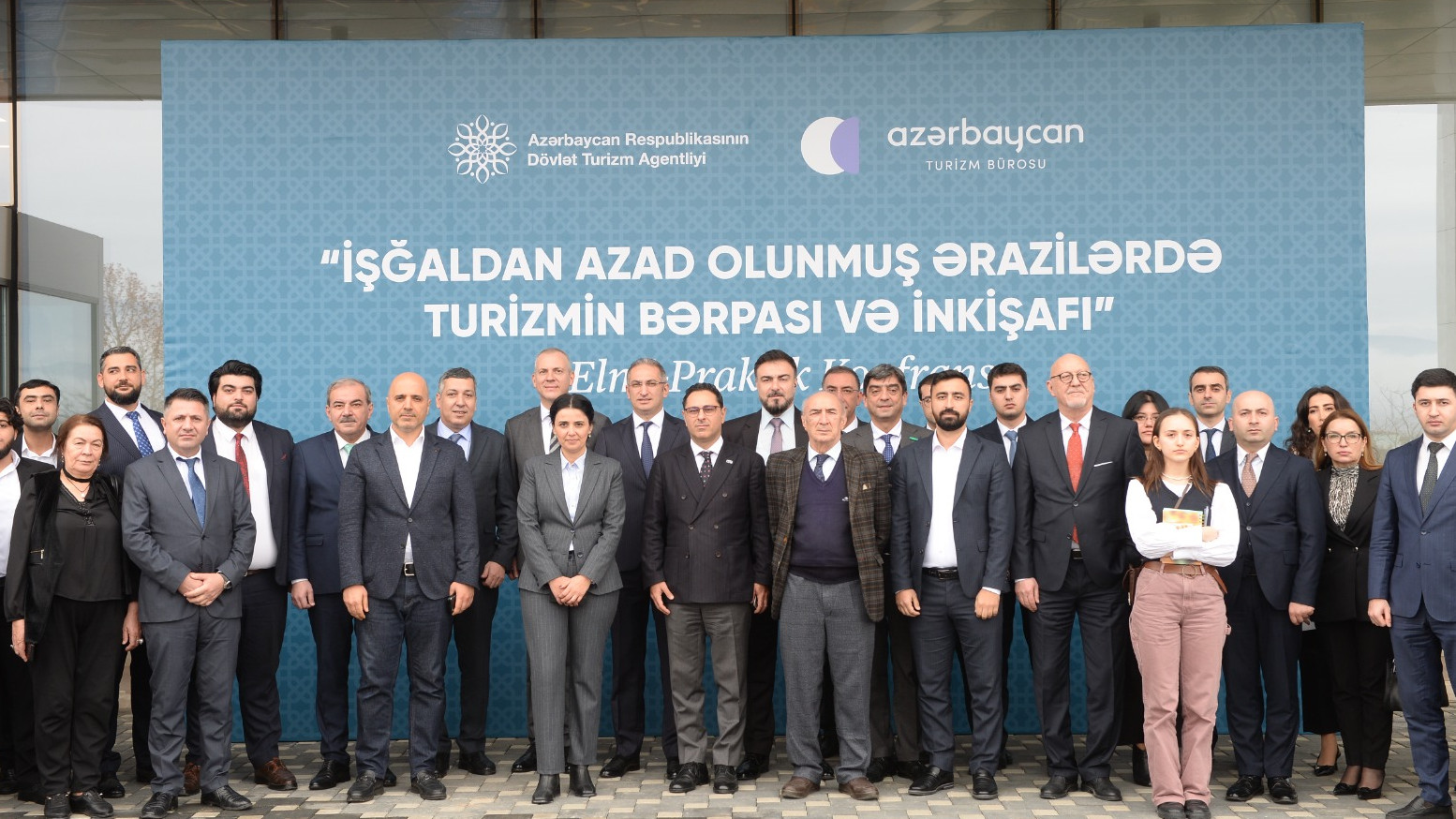
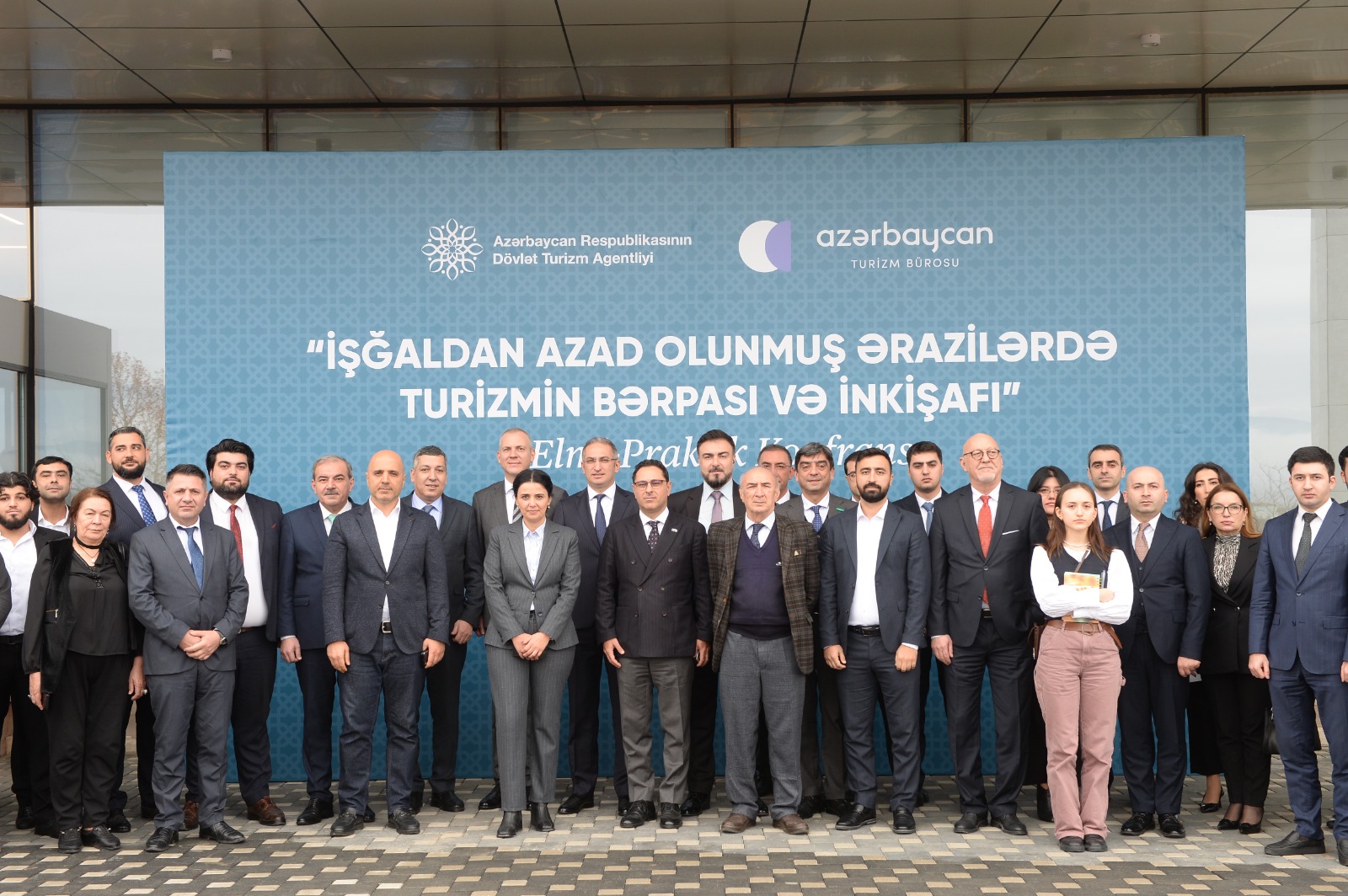
.jpeg)
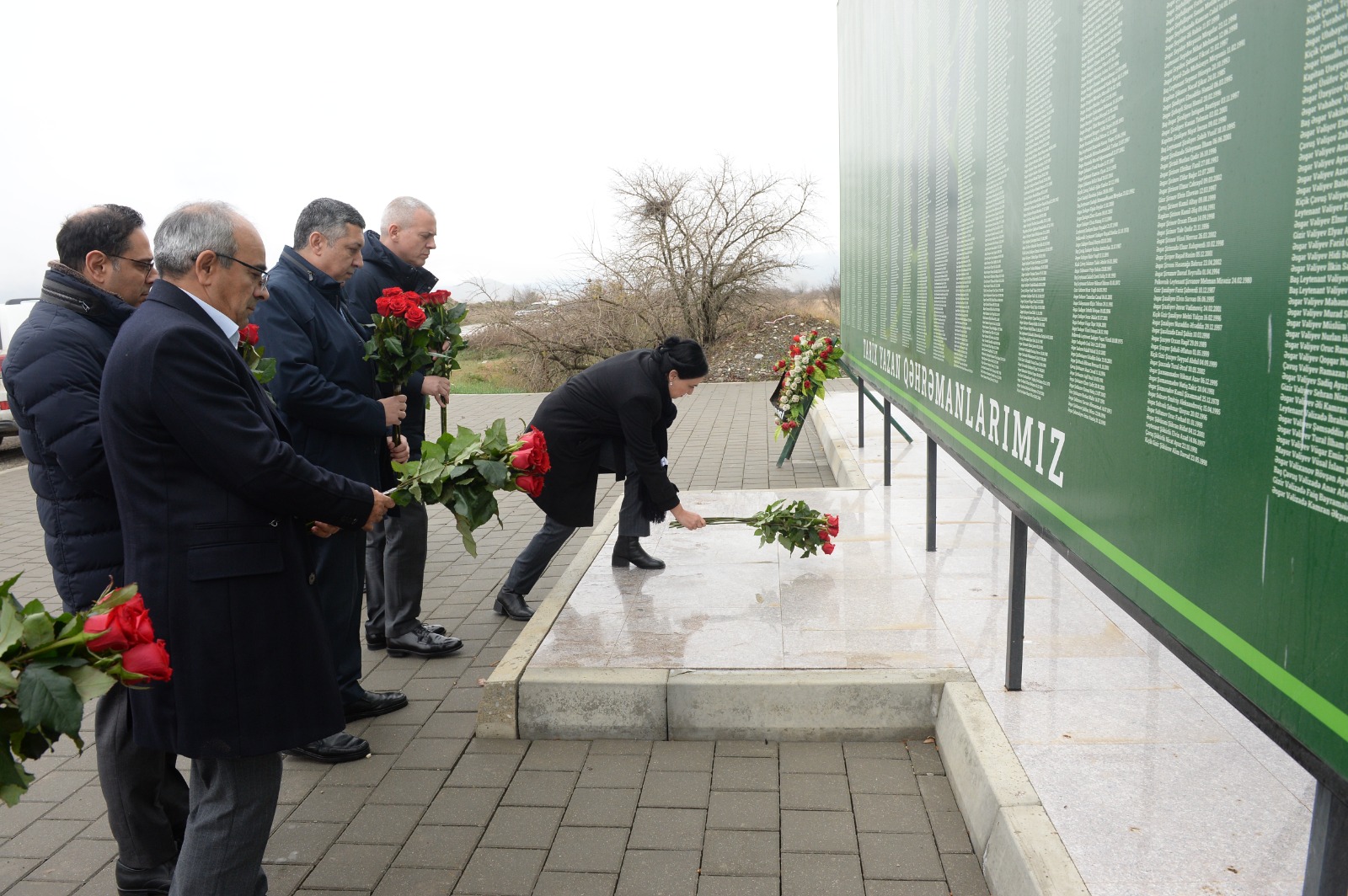
.jpeg)
.jpeg)
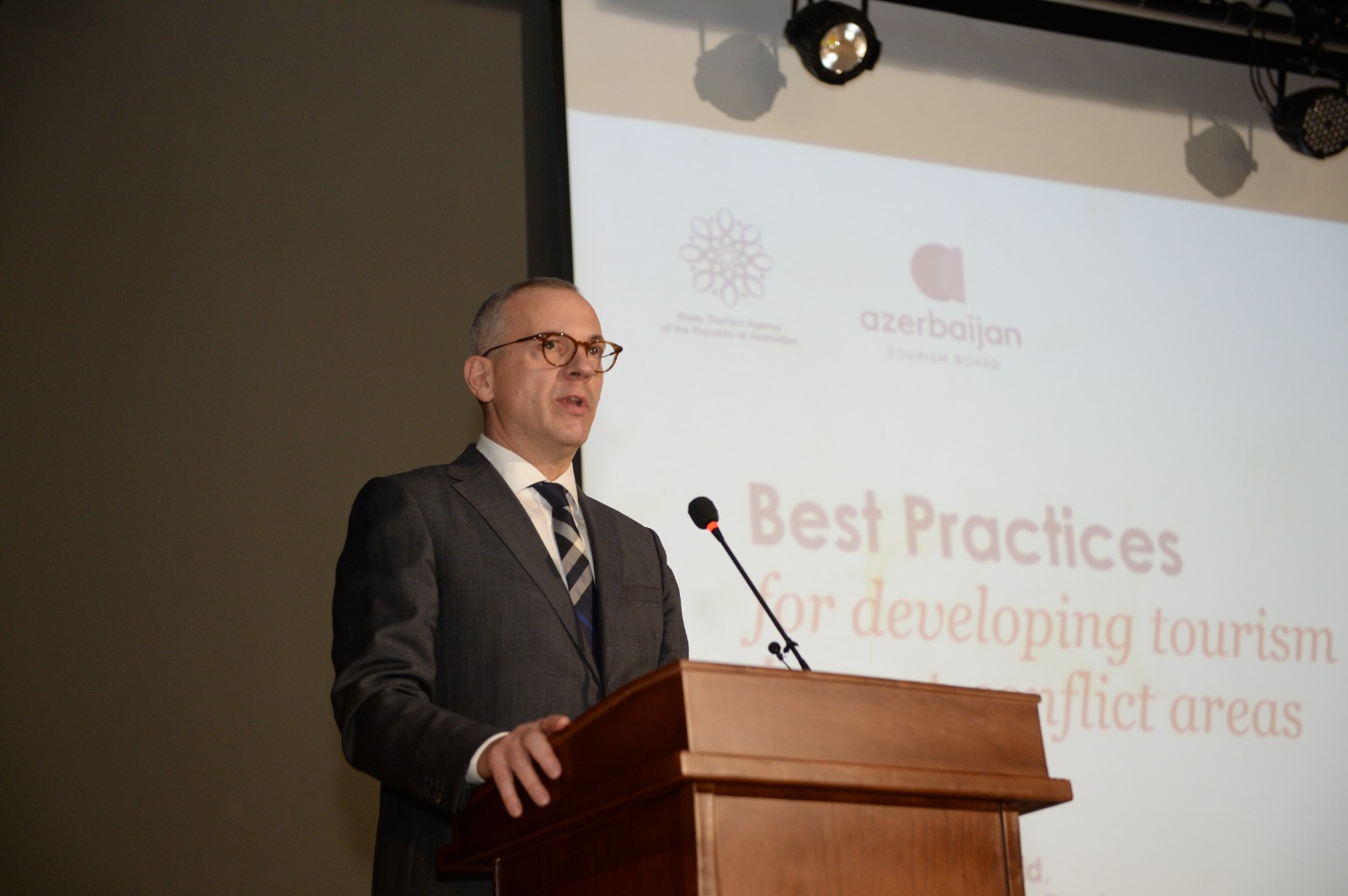
.jpeg)
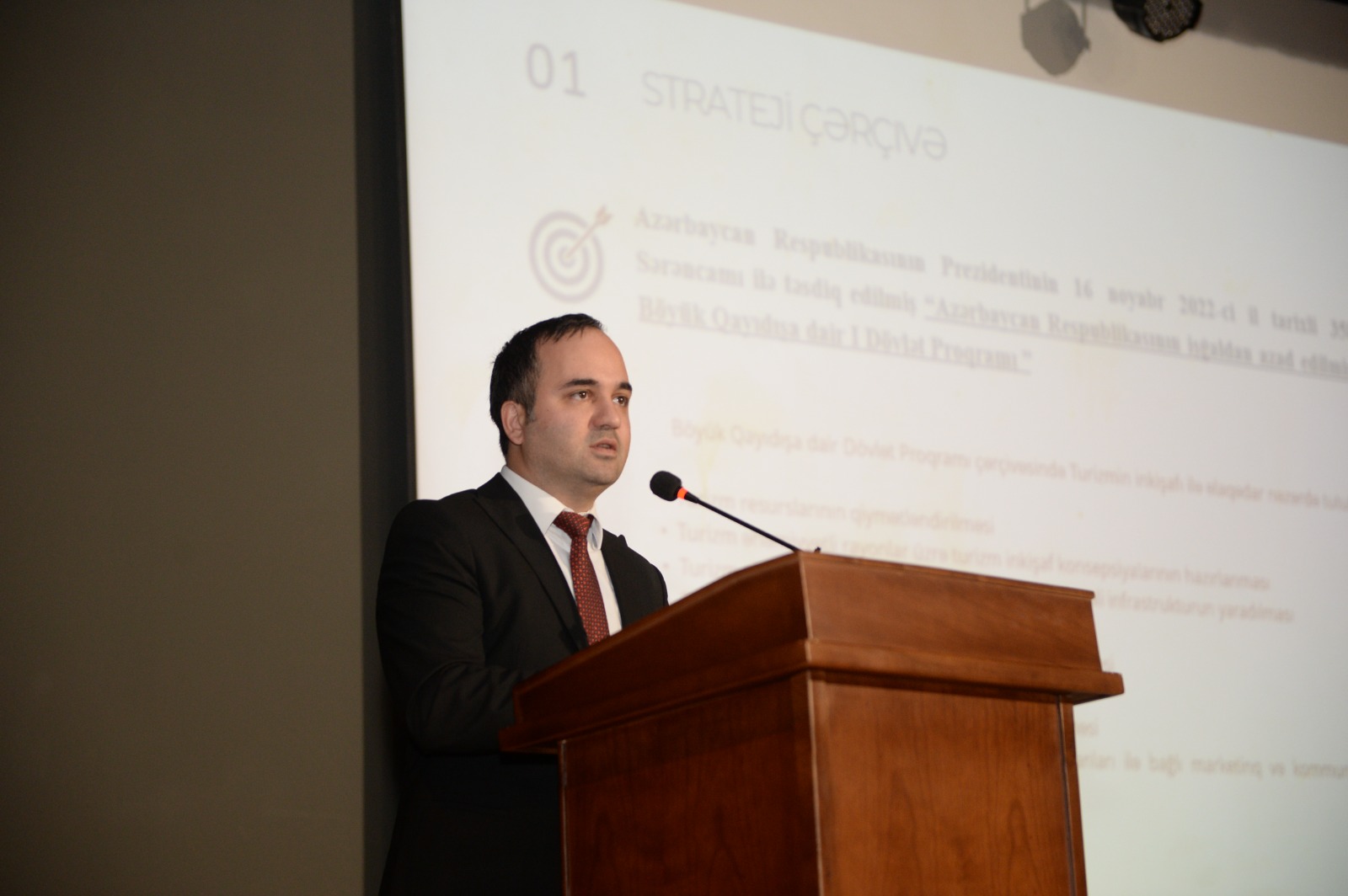
.jpeg)
.jpeg)
.jpeg)
.jpeg)
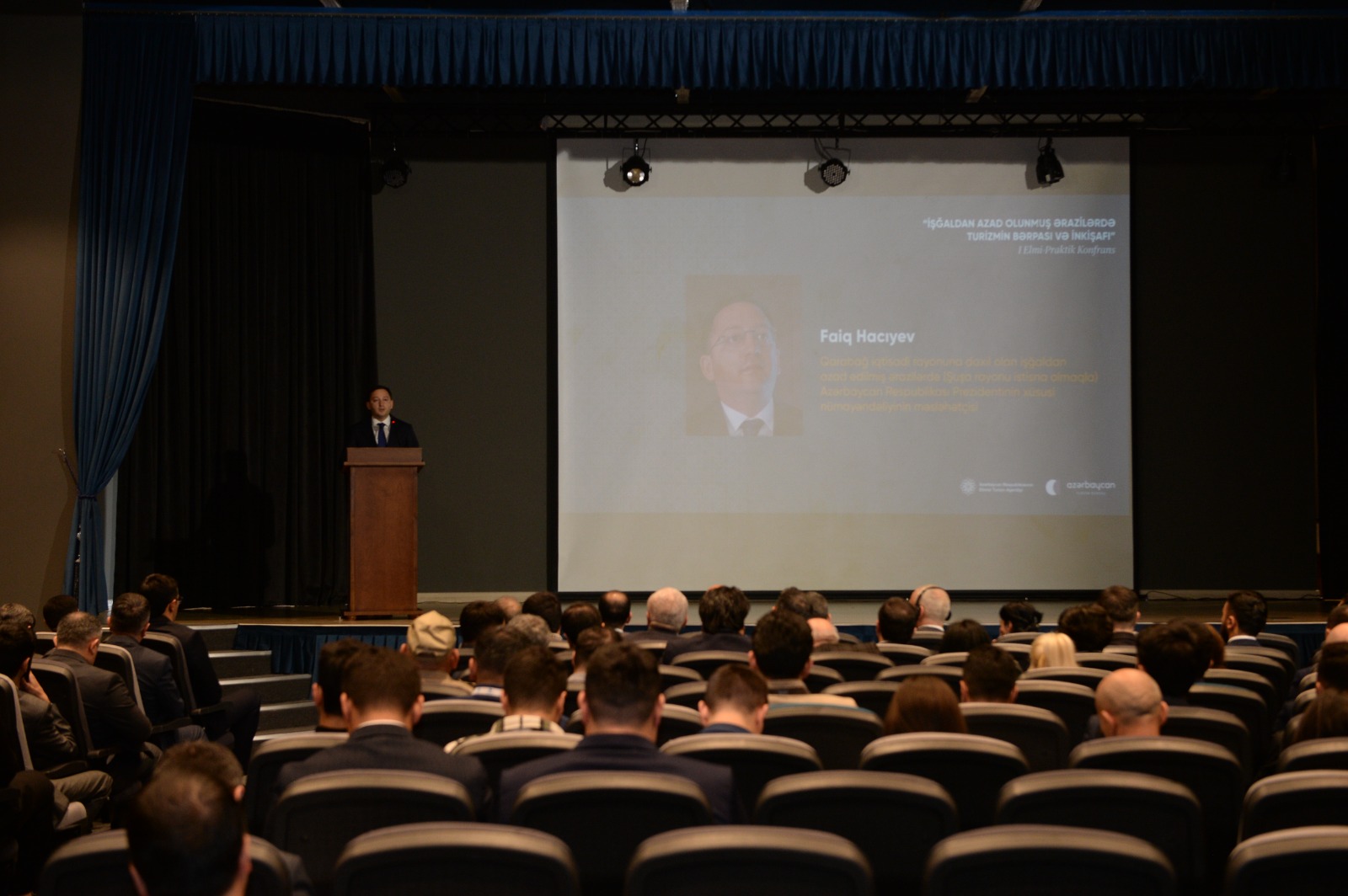
.jpeg)
.jpeg)
